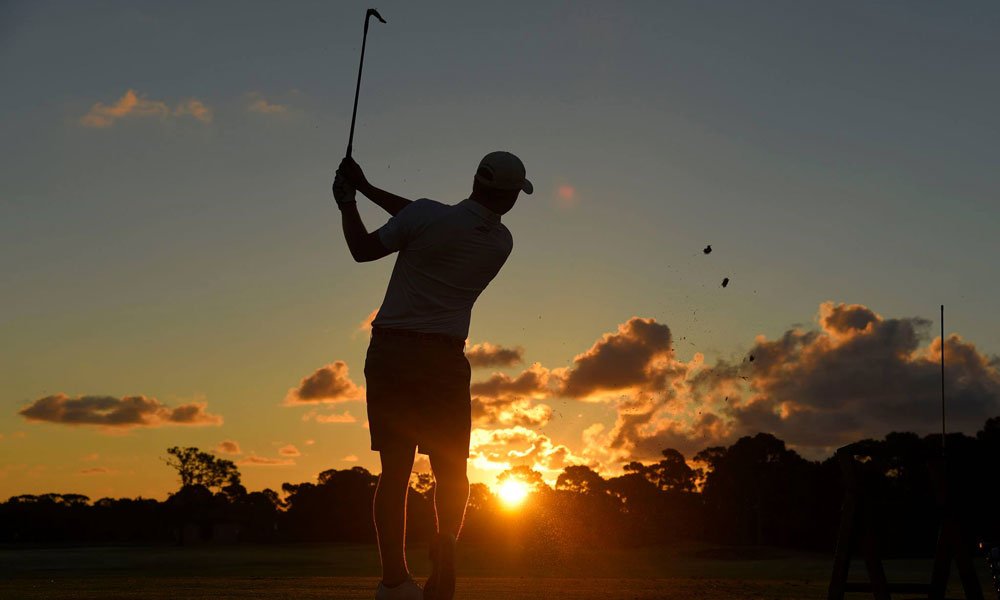
The Problem With Periscope at Golf’s U.S. Open
After years of hesitation about allowing cellphones on the links, the U.S. Golf Association will permit them for the first time at this year's event. But spectators will definitely not be allowed to use the live-streaming features of Periscope or Meerkat.
The U.S. Golf Association (USGA) is allowing people to bring cellphones into the U.S. Open this week. Big deal, you say—your organization lets event attendees do that all the time.
“We offer three channels of live streaming of our own. We believe that’s a much better viewing experience than having fans distribute videos.”
Well, you may be surprised to hear that this is the first time ever that the golfing event has been open to the technological marvels that most of us take for granted. And you’ll still have to leave your tablet at home, according to the regulations, which are designed to limit distractions.
“Spectators may carry mobile devices smaller than 7 inches in length and/or height, including cellphones, smartphones, and PDAs,” USGA announced in a press release in April. “All device volume controls must be set to silent or vibrate at all times.”
And there’s another condition that attendees of the big event, being held this week at the Chambers Bay golf course in Washington state, must beware of: Use Meerkat or Periscope and you’ll be kicked out.
The reason? USGA has the video part covered, thank you very much.
“We offer three channels of live streaming of our own,” USGA Director of Public Relations Janeen Driscoll told CNN Money. “We believe that’s a much better viewing experience than having fans distribute videos.”
On top of that, the association let spectators take photos at this week’s practice rounds. But during the event itself, which starts Thursday, golf enthusiasts will have to save those Instachats and Snappics in their memory bank.
Why Cellphones Anger Golfers
Historically, cellphones—with their noisy ringers and distracting flashes—have been a no-no at golfing events and have been blamed for some pros losing their mojo during stressful moments, including in 2012 at the annual Memorial Tournament, when it was believed that star golfer Phil Mickelson withdrew because of overeager cellphone users.
“It took Phil out of his game,” fellow star golfer Bubba Watson told PGA.com about the incident. “Phil’s a great player and a great champion, and it just took him out of his game. It’s sad. It’s sad that cellphones can make or break a championship.”
Nonetheless, USGA decided to relent this year—thanks, in part, to safe zones designated for cellphone use, complete with WiFi access.
“It’s a policy we’ve been looking at for some time at the USGA,” Driscoll told Golf.com in April. “Previously, the use of mobile phones had been a concern to us from a security perspective, but we’ve seen we’re able to control that, and that in this day and age, people are accustomed to having [mobile phones on] them for their own personal security.”
Periscope Problems
But some, including journalists, have raised concerns about selective enforcement of the cellphone rules—particularly those pertaining to live streaming. (At last month’s Mayweather-Pacquiao boxing match, fans who live-streamed the bout on Meerkat and Periscope created a big controversy.)
Earlier this year, golf blogger Stephanie Wei wrote about being kicked off the PGA tour because she had used Periscope during a practice round—even though the association itself had experimented with Periscope at the event.
“While I knew I was pushing the envelope a bit, the feedback from fans was so positive that I continued to Periscope for a little while longer,” she wrote in a blog post on Medium. “Turns out I was wrong. My credentials for the rest of the season (the next one begins in October) were revoked, and I was told I had no recourse for appeal.”
Meanwhile, golfers themselves have been experimenting with Periscope, and nobody’s stopped them yet.
“No one from the USGA has told me to turn it off yet, so I guess I’m going with the ask for forgiveness as opposed to permission,” Graeme McDowell, a 2010 U.S. Open champ, said in a press conference. “I think it can be a lot of fun if done well.”
(Scott A. Miller/USGA)






Comments